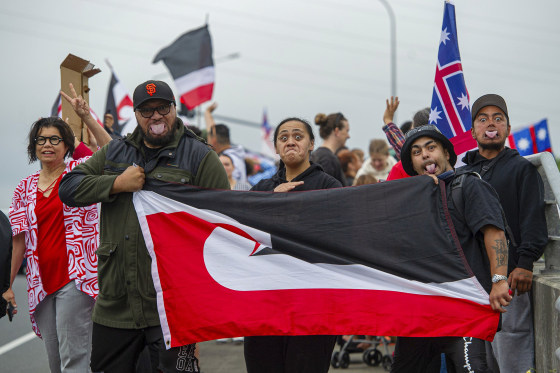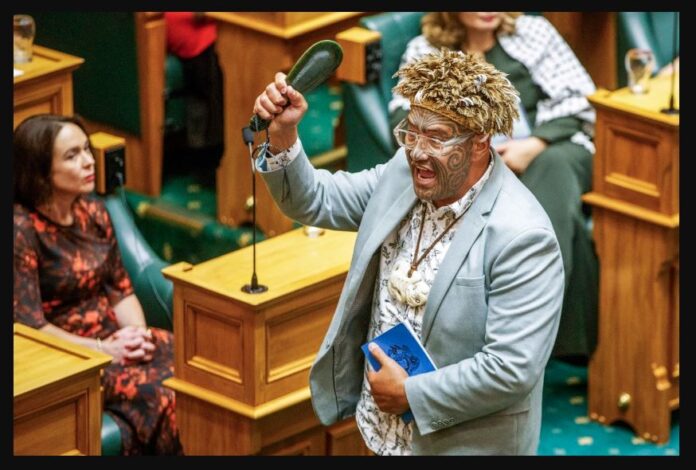During the opening of the New Zealand parliament on Tuesday, Maori lawmakers defied convention by swearing loyalty to Britain’s King Charles III after first promising devotion to their ancestors and the nation’s founding constitution.

For the first time since the election on October 14, the parliament of New Zealand was in session. The nation’s head of state, King Charles III, is required to take an oath from every member of parliament.
Each of the six MPs from Te Pati Maori, the Maori people’s party and the smallest party in parliament, vowed to uphold tikanga, or Maori customs, and the Maori translation of the Treaty of Waitangi to their mokopuna, or descendants.
The principles under which the British and Maori agreed to administer New Zealand were outlined in the Treaty of Waitangi, which was signed in 1840.
However, there is disagreement between the Maori and English interpretations of the treaty, and it is unclear if the Maori gave up sovereignty.
A few of the Te Pati Maori members performed an Indigenous challenge or sang while donning cloaks and headdresses made of feathers to represent their ancestry.
Later, the party members pledged loyalty to the monarch, but at least two of them substituted Kingi Harehare for Kingi Tiare. Rawiri Waititi, a co-leader of Te Pati Maori, informed the local media that Charles was also known by the moniker Harehare. It may also mean anything unpleasant or disagreeable, however.

The move did not worry other Maori-speaking legislators.
The oath is a sign of the colonial authority that Parliament puts above the status of Indigenous people, according to a statement released on Friday by Te Pati Maori, an organization that seeks to remove the monarch from his position as head of state.
The action is taken as racial relations tensions in New Zealand intensify. Earlier in the day, Te Pati Maori spearheaded rallies around the nation.

Though there isn’t much of a republican movement in New Zealand, the question of whether the Pacific country should become a republic with a citizen as head of state has been up for discussion for a while. This sentiment is more intense in certain Indigenous communities—both in New Zealand and abroad—because the monarch is seen as a representation of colonialism.
Lidia Thorpe, an Indigenous Australian MP, was forced to repeat her parliamentary oath in 2022 after she altered it to refer to the queen of Britain as a coloniser.
Several politicians from New Zealand have attempted in the past to evade taking the oath, but ultimately gave in to serve in the government.





